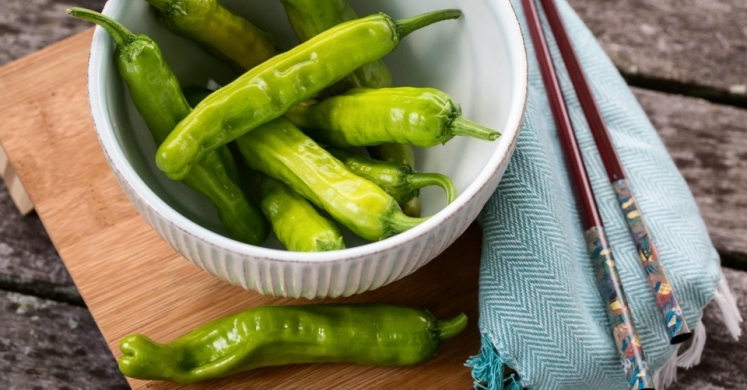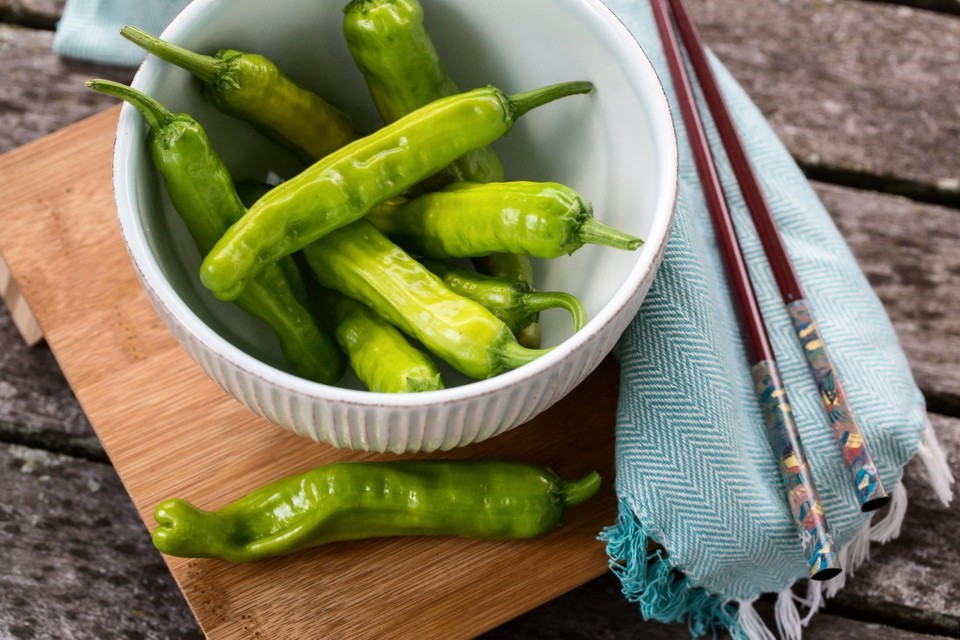Phipps Feature: "Food in the News: Top Trendy Fruits & Veggies in 2018"

It’s that time of year again: growing season! Many savvy
seedsmen and women have ventured outdoors to plant their most-coveted crops.
The benefits of at-home gardening are numerous and include: environmental
sustainability, improved self-sufficiency, and access to fresh, economical
produce. The plants that thrive in home gardens are as diverse as the gardeners
who grow them. From foreign fruits in wild shapes and sizes to common
vegetables with uncommon colors; planting novel crops can add both variety and
vibrancy to your backyard and dinner plate,1,2 Here are the top
fruit and vegetable treats that have plant experts in Pittsburgh asking for
more.
Kohlrabi

This alien-looking vegetable is a member of the Brassica
family and is indigenous to Ireland. It is a pollinator-friendly plant that is
said to have a sweet, ‘cabbage-like’ flavor. The stem of the plant can be
either roasted or eaten raw (much like broccoli), while its leaves are
best-eaten fresh or sautéed (similar to kale or collard greens). Kohlrabi is
available in green and purple varieties (see photo) and is ready to harvest
when it's stem swells to mirror the size of a tennis ball. Not surprisingly,
the vegetable is also a nutritional powerhouse, as it serves as an ample source
of potassium, calcium, and vitamins A&C.1,3
Cape Gooseberries

Also known as Physalis or Ground Cherries, Cape Gooseberries
resemble mini yellow tomatoes encased in delicate paper lanterns. The berries
grow on a soft-stemmed, bushy plant that is native to Brazil. The mature
(yellow) fruit is most-commonly consumed raw, dried, or jellied and is
described as having a tomato, cranberry-like flavor. The fruit should not be
consumed prior to maturity but is ready to be harvested once it has dropped
from the mother plant. These wholesome fruits contain numerous antioxidants and
are naturally high in fiber, calcium, and vitamin A.1,4,5
Tigernuts

The tigernut plant or ‘Chufa’ is actually a variety of grass
that is indigenous to Egypt. Each plant produces numerous small, underground
tubers that resemble peanuts (legumes). Like other root vegetables, the
tigernut is naturally rough and rounded in appearance and adopts a earthy-brown
color. Tigernuts are not to be eaten raw but are commonly consumed dried, or as
a flour, oil, or milk. Nutritionally, tigernuts are a significant source of
potassium, calcium, and magnesium. 1,6,7
Shishito Peppers

‘Dragon Roll’ or Shishito peppers are wrinkly, mildly hot
peppers that are indigenous to East Asia. The mature pepper, ranging from 3 to
5 inches in length, tops out at 200 Scovilles, meaning that it is milder than a
jalapeno. Shishitos are generally harvested once fully grown yet still green
and are a wonderful addition to red sauces, appetizers, and stir-fry meals.
Nutritionally, the peppers serve as an excellent source of vitamins A and C.2,8
By Jessica Rea, Sports Medicine and Nutrition Student with Let´s Move Pittsburgh
Sources:
1. Top 10 Unusual Edibles to Grow in your Garden. Lovely
Greens. Published March 19, 2018. Accessed June 13, 2018.
2. Weigel G. Looking forward to spring: 10 best new
vegetables of 2018. Penn
Live. Published 2018. Accessed June 13, 2018.
3. United States Department of Agriculture. Food
Composition Databases Show Foods - Kohlrabi, Raw. National
Nutrient Database for Standard Reference Legacy Release. Accessed June
13, 2018.
4. United States Department of Agriculture. Food Composition
Databases Show Foods - Cape Gooseberry. National
Nutrient Database for Standard Reference Legacy Release. Accessed June
13, 2018.
5. Ogden Publications, Inc. Knowing, Growing and
Eating Cape Gooseberries - Real Food. Mother
Earth News. Accessed June 13, 2018.
6. United States Department of Agriculture. Food Composition
Databases Show Foods - Organic Tigernut Raw Snack. National
Nutrient Databse for Standard Reference Legacy Release. Accessed June 13,
2018.
7. Tiger Nuts: Grow Your Own. Garden
Culture Magazine. Published February 26, 2018. Accessed June 13, 2018.
8. United States Department of Agriculture. Food
Composition Databases Show Foods - Shishito Peppers. National
Database for Standard Reference Legacy Release. Accessed June 13, 2018.
Original Post: June 15. 2018 https://www.phipps.conservatory.org/blog/detail/food-in-the-news-top-trendy-fruits-veggies-in-2018
Comments
Post a Comment